
Developing Strengths, Styles, and Communications: A Public Health Leadership Series
How can public health professionals develop their leadership style to effectively communicate, build and lead strong teams, and make tough decisions to address modern day problems?

Course Information
- Audience: Public health leaders or aspiring leaders
- Format: Self-Paced
- Price: Free
- Length: 3.5 Hours
- Credential(s) eligible for contact hours: Sponsored by New England Public Health Training Center (NEPHTC), a designated provider of continuing education contact hours (CECH) in health education by the National Commission for Health Education Credentialing, Inc. This program is designated for Certified Health Education Specialists (CHES) and/or Master Certified Health Education Specialists (MCHES) to receive up to 1 total Category I continuing education contact hour. Maximum advanced-level continuing education contact hour is 1. Provider ID: 1131137 Event ID: 08122020. If you are not seeking a CHES/MCHES contact hours, if you complete the post-test and evaluation, you will receive a Certificate of Completion. The Certificate will include the length of the course.
- Competencies: Policy Development and Program Planning Skills,
Communication Skills,
Leadership and Systems Thinking Skills - Learning Level: Awareness
- Companion Trainings: None
- Supplemental materials: Syllabus, course schedule, guide, power points
- Pre-requisites: None
About this Course
The aim of this 9-part Public Health Leadership series is to build skills to be an effective leader in the
field of public health. The series explores strengths-based leadership, personal and organizational
resilience, and skills for leading a team. Practical tools and approaches are shared for creating a culture of
feedback, navigating challenging conversations, strategic planning, and implementing and sustaining change.
What you'll learn
At the end of the course, you will be able to:
- Recognize leadership styles and be able to describe the benefits of strengths-based leadership to
promote personal and organizational resilience.
● Utilize skills in leading a team, including creating a culture of feedback and navigating
challenging conversations.
● Identify tools for leading an organization with decision making models, systems thinking and
strategic planning, and innovation initiatives.
Subject Matter Expert
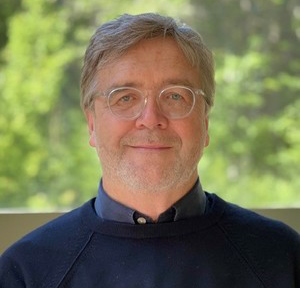 Bob Wright,
Bob Wright,
Strategic Consultant, Facilitator, Executive Coach ,
Daniel Hanley Center for Health Leadership
Bob Wright is an organization development consultant, strategic planner and leadership coach committed to helping organizations clarify and realize their missions, and to encouraging employees to bring more of who they are to what they do. In addition to facilitating the signature Physician and Provider Executive Leadership Institute and Health Leadership Development programs at the Hanley Center, he supports Hanley clients in strategic planning and solving complex organizational challenges. Bob has designed and implemented organization and leadership development initiatives throughout North America, Asia, Europe and Africa. He also works with health care systems, state and local governments, and non-profit organizations on quality management, organization culture development, work systems redesign, strategic and business planning, and community-building efforts. Among his clients are Boston College, Bose Corporation, Children and Families First, Christiana Care Health Services, Coastal Rivers Conservation Trust, the Delaware Healthcare Commission, The Economic Commission for Africa, The Maine Commission for Community Service, the National Institutes of Health, Nemours Health and Prevention Services, the Peace Corps, the Smithsonian Institution, the Student Conservation Association, the United Nations, and the YMCA. He annually facilitates the acclaimed Maine Association of Nonprofits Leadership Institute for Executive Directors. Bob has served on several nonprofit boards, holding numerous roles including board president. Bob holds a Masters degree in Management from the School for International Training, and a bachelor’s degree in Anthropology and Intercultural Communication. He is trained in Gestalt Psychology, and is a Professional Certified Coach with the International Coaching Federation.
Enrollment and Contact Hours
Select the Enroll Me button below to register for this course. If you have any trouble accessing the recording, contact
support@nephtc.org.
Acknowledgement: This project is supported by the Health Resources and Services Administration (HRSA) of the U.S. Department of Health and Human Services (HHS) as part of award 2 UB6HP31685‐05‐00 “Public Health Training Centers.” The contents are those of the author(s) and do not necessarily represent the official views of, nor an endorsement, by HRSA, HHS or the U.S. Government.

An Equity Guided Approach to Public Health for Leaders at All Levels
What value-driven leadership actions will allow you to approach public health improvement through the lens of health equity?

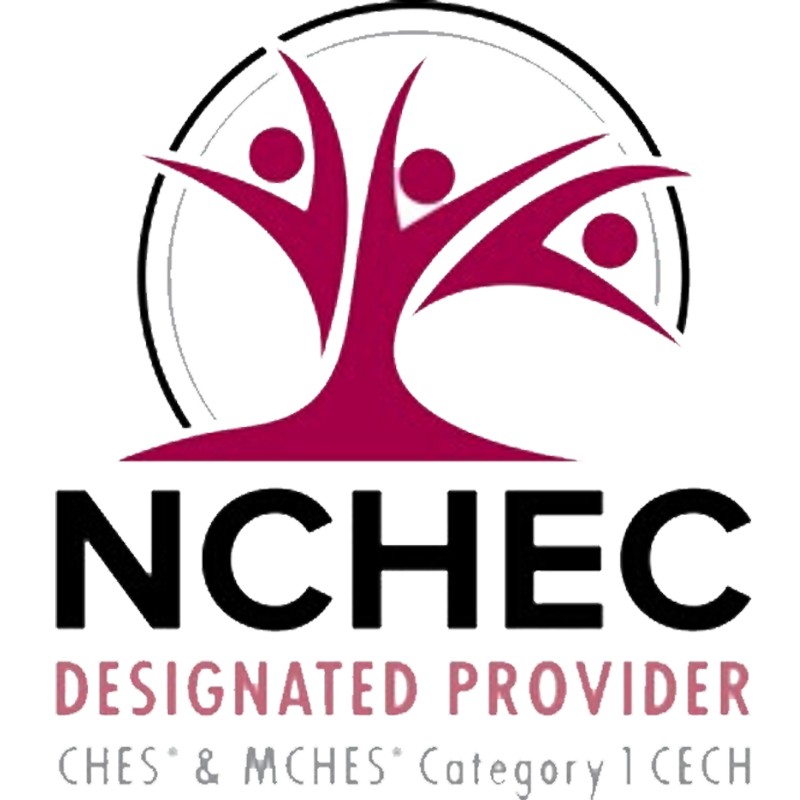
Course Information
- Audience: Public health organizations and professionals interested in improving health equity; leaders and managers responsible for developing strategies, programs, policies and partnerships.
- Format: Self-paced
- Price: Free
- Length: 1 hour
- Credential(s) eligible for contact hours:
Sponsored by New England Public Health Training Center (NEPHTC), a designated provider of continuing education contact hours (CECH) in health education by the National Commission for Health Education Credentialing, Inc. This program is designated for Certified Health Education Specialists (CHES) and/or Master Certified Health Education Specialists (MCHES) to receive up to 1 total Category I continuing education contact hour. Maximum advanced-level continuing education contact hour is 1. Provider ID: 1131137 Event ID:SS1131137_AEGAPHL.
If you are not seeking a CHES/MCHES contact hours, if you complete the post-test and evaluation, you will receive a Certificate of Completion. The Certificate will include the length of the course. - Competencies: Leadership and Systems Thinking Skills
- Learning Level: Awareness
- Companion trainings: None
- Pre-requisites: None
- Technical Requirements: This training was created with Articulate Storyline. Please refer to the Articulate 360 System Specifications to ensure your system meets the minimum requirements for viewing.
About this course
This course will teach you the definitions, value-driven actions and further learning needed to develop your leadership approach to health equity. You’ll think about applying the actions and skills in your scope of influence. Over time, developing your equity guided approach will allow you to to incorporate health equity principles into public health strategies and programs, and increase engagement and partnership.
What you'll learn
After completing this course, you will be able to:
- Define health equity and key terms related to health equity
- Identify four value-driven leadership actions for health equity
- Analyze the value-driven actions in your scope of influence
- Explore further learning to strengthen leadership, including some strategic skills
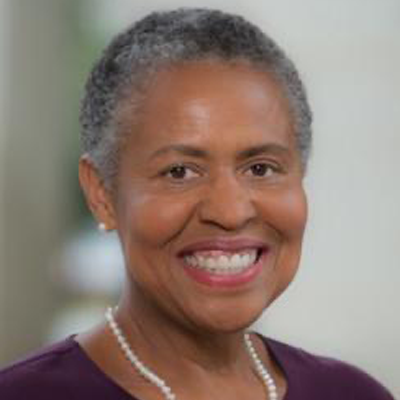
Jewel Mullen, MD, MPD
Associate Dean for Health Equity, University of Texas
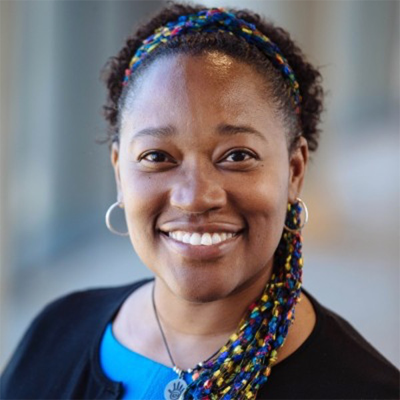
Lailea Noel, PhD
Assistant Professor, University of Texas
Jewel Mullen, M.D., MPH, is the associate dean for health equity at the Dell Medical School, as well as an associate professor in the school’s population health and internal medicine departments. She also serves as a senior consultant for Ascension Seton to help meet health equity goals across its system. Mullen is an internist, epidemiologist, public health physician leader and the former principal deputy assistant secretary for health in the U.S. Department of Health and Human Services (HHS). While at HHS, she also served as the acting assistant secretary for health and acting director of the National Vaccine Program Office during the months bridging the transition from the Obama to the Trump administrations. Prior to her time at HHS, Mullen served for five years as commissioner of the Connecticut Department of Public Health. Her career has spanned clinical, research, teaching and administrative roles focused on improving the health of all people, especially those who are underserved. She is recognized nationally and internationally as a leader in building effective community-based chronic disease prevention programs and for her commitment to improving individual and population health by strengthening coordination between community, public health and health care systems. Mullen is the former director of the Bureau of Community Health and Prevention at the Massachusetts Department of Public Health and medical director of Baystate Mason Square Neighborhood Health Center in Springfield, Massachusetts. She has held faculty appointments at the New York University, University of Virginia, Yale University and Tufts University schools of medicine. As Connecticut’s public health commissioner, Mullen created an Office of Health Equity Research, Evaluation and Policy to ensure that reducing disparities was included as a deliberate, measurable outcome of the department’s programmatic and regulatory efforts. She also successfully spearheaded initiatives to reduce racial disparities in low birth weight and infant mortality, advanced legislation to improve end-of-life care and led development of the state’s health assessment and health improvement plan as precursors to the department achieving accreditation by the Public Health Accreditation Board. As commissioner, she also directed her agency’s response to events such as natural disasters, the tragic shooting at Sandy Hook Elementary School and infectious disease outbreaks such as Ebola. Her accomplishments at HHS included participation in the coordination of the federal public health response to Zika, working closely with the Centers for Disease Control and Prevention (CDC), other federal partners and leaders in Puerto Rico. Mullen serves on the editorial board of the CDC’s Morbidity and Mortality Weekly Report, the Robert Wood Johnson Foundation’s Policies for Action National Advisory Committee, the Alzheimer’s Association/CDC Healthy Brain Initiative Leadership Committee and the Medical Education Committee for the Icahn School of Medicine at Mount Sinai. She also is a member of the Committee on a National Strategy for Cancer Control in the United States at the National Academies of Sciences, Engineering and Medicine. A former member of the Advisory Committee to the CDC Director and its subcommittee on health disparities, Mullen chaired the CDC’s Breast and Cervical Cancer Early Detection and Control Federal Advisory Committee. She is a former president of the Association of State and Territorial Health Officials. Board certified in internal medicine, Mullen received her bachelor’s degree and Master of Public Health from Yale University where she also completed a post-doctoral fellowship in psychosocial epidemiology. She graduated from the Mount Sinai School of Medicine, where she was elected to Alpha Omega Alpha national medical honor society, and completed her residency at the Hospital of the University of Pennsylvania. She also holds a Master of Public Administration from Harvard University’s John F. Kennedy School of Government.
Lailea Noel is an assistant professor at the Steve Hicks School of Social Work. Noel’s research investigates the social and economic conditions that contribute to lower cancer treatment utilization and higher mortality rates in marginalized communities, particularly communities of color, and communities within residentially segregated urban and rural neighborhoods. She has a passion for conducting community-based participatory research and has a wealth of experience engaging communities, social scientists and medical professionals in such research partnerships. Her research interest and approach are informed by the two decades she spent as an oncology social work administrator at prestigious organizations — including the American Cancer Society and University of Michigan Comprehensive Cancer Center — prior to pursuing her Ph.D. During her doctoral studies at Washington University in St. Louis, Noel participated in a five-year, community-based participatory research project in an area with high rates of poverty and the worst cancer mortality rates in metropolitan St. Louis. Her dissertation work, supported by an American Cancer Society Doctoral Training Grant in Oncology Social Work, explored the experiences of African American women in St. Louis, who had not started treatment for breast cancer six-months to two years following diagnosis. Since she joined the NYU Silver faculty in 2016, and was the 2018-19 Donald D. Harrington Faculty Fellow at The University of Texas at Austin.
Enrollment and Contact Hours
Select the Enroll button below to register for the course. If you have any trouble accessing the course, contact support@nephtc.org.
Acknowledgement:
This project is/was supported by the Health Resources and Services Administration (HRSA) of the U.S. Department of Health and Human Services (HHS) under grant number UB6HP31685 “Regional Public Health Training Center Program.” This information or content and conclusions are those of the author and should not be construed as the official position or policy of, nor should any endorsements be inferred by HRSA, HHS or the U.S. Government.

Course Information
- Audience: Public Health Professionals
- Format: Recorded Webinar
- Date/Time: Wednesday, September 20, 2023, 1:00 PM – 2:30 PM ET
- Price: Free
- Length: 1.5 hours
- Credential(s) eligible for contact hours: Sponsored by New England Public Health Training Center (NEPHTC), a designated provider of continuing education contact hours (CECH) in health education by the National Commission for Health Education Credentialing, Inc. This program is designated for Certified Health Education Specialists (CHES) and/or Master Certified Health Education Specialists (MCHES) to receive up to 1.5 total Category I continuing education contact hours. Maximum advanced-level continuing education contact hours are 0. Provider ID: 1131137 Event ID: PM1131137_10302023.
If you are not seeking CHES/MCHES contact hours, if you complete the post-test and evaluation, you will receive a Certificate of Completion. The Certificate will include the length of the course.
- Competencies: Policy Development and Program Planning Skills
- Learning Level: Awareness
- Companion Trainings: None
- Supplemental materials:None
- Pre-requisites: None
About this Recording
This program explored the challenges associated with obtaining data about marginalized and hard-to-reach populations. Which populations are “hidden” from existing public health statistics? What methods and techniques can help us fill these gaps so we can better identify and address the health needs of these populations moving forward?
What you'll learn
At the end of the recording, participants will be able to:
- List two challenges in identifying invisible populations
- Discuss how social networks and respondent driven sampling can reach populations that may otherwise be invisible
- Explain internal displacement and some of the health challenges faced by internally displaced persons
Subject Matter Experts

Scarlett Bellamy
Chair and Professor, Department of Biostatistics, Boston University School of Public Health
Louisa Yasukawa
Researcher, Internal Displacement Monitoring Center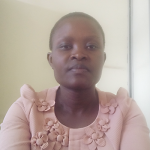
Renice A. Bunde
Assistant Manager, Governance, Peace and Security Statistics, Kenya National Bureau of Statistics
Forrest W. Crawford
Associate Professor of Biostatistics, Operations, and Ecology & Evolutionary Biology, Yale University
Paul Wesson
Assistant Professor, Epidemiology & Biostatistics, UCSF School of Medicine
Scarlett Bellamy will join the SPH community as Chair and Professor of Biostatistics on July 1st, 2023. Prior to her arrival at BU she was a professor in the Department of Epidemiology and Biostatistics and the Associate Dean for Diversity and Inclusion at Drexel University Dornsife School of Public Health. Before joining Drexel University in 2016, Bellamy spent 15 years at the University of Pennsylvania (UPenn) Perelman School of Medicine, where she was a professor of biostatistics. She holds a bachelor’s degree in mathematics from Hampton University, and completed her doctoral training in biostatistics at the Harvard University T.H. Chan School of Public Health. Much of Bellamy’s research centers on evaluating the efficacy of interventions in longitudinal behavioral modification trials, including cluster- and group-randomized trials. She is particularly interested in applying this methodology to address health disparities for a variety of clinical and behavioral outcomes, including HIV/AIDS, cardiovascular disease, and health-promoting behaviors. Bellamy previously served as the co-principal investigator of the Data Coordinating Center for the Prematurity and Respiratory Outcomes Program at UPenn, which aimed to improve respiratory outcomes during the first year of life after preterm birth. She was also PI of the Fostering Diversity in Biostatistics Workshop at the Eastern North American Region of the International Biometric Society (ENAR). This federally funded initiative aims to increase the number of underrepresented minorities in graduate training and professional careers in biostatistics. In 2016, Bellamy was elected a fellow of the American Statistical Association (ASA). The designation has been an honor for nearly 100 years, and under ASA bylaws, only one-third of one percent of the total association membership may be elected as fellows each year. In 2017, Bellamy served as the president of ENAR. She also currently serves as a statistical collaborator for the Center for Health Equity Research and Promotion at the Corporal Michael J. Crescenz Veterans Affairs Medical Center in Philadelphia.
Louisa is a Researcher at IDMC, where she focuses on the socioeconomic impacts of internal displacement. She currently leads IDMC’s research programmes on gender, children, youth and education, and people with disabilities. Louisa has lead research projects in various countries including Cameroon, Colombia, Kenya, Mali, Niger and Vanuatu, with the aim of informing humanitarian programming and planning on internal displacement. Louisa is a qualified lawyer from Australia and holds an MSc in Refugee and Forced Migration Studies from the University of Oxford. She has previously worked for the UNHCR in Ecuador and Colombia-based research and advocacy organisation, Dejusticia. Louisa speaks English and Spanish.
Renice Akinyi Bunde works with Kenya National Bureau of Statistics as an Assistant Manager in Governance, Peace and Security Statistics where she handles statistics on human rights for the vulnerable population especially persons with disability, forcibly displaced, women and girls, children, street families and the elderly. She also handles statistics on crime, social protection, participation in decision making among others. She is a champion for inclusive data. Renice holds both Master and Bachelor’s Degree in Applied Statistics from Maseno University.
Forrest W. Crawford is an Associate Professor of Biostatistics, Statistics & Data Science, Operations, and Ecology & Evolutionary Biology at Yale University. He is affiliated with the Center for Interdisciplinary Research on AIDS, the Institute for Network Science, the Computational Biology and Bioinformatics Program, and the Public Health Modeling Concentration. His work develops and applies solutions in AI/ML, data science, causal inference, network science, and other methodological domains to solve difficult inferential problems in epidemiology, public health, and social science.
Paul Wesson, PhD is an epidemiologist focused on quantifying the health burdens of (and disparities related to) hard-to-reach and socially marginalized populations, particularly as they relate to infectious diseases. His research expertise includes developing and using data driven methods for sampling hard-to-reach and “hidden” populations, population size estimation methods, and using advanced epidemiologic and statistical techniques to study the social determinants of health. Dr. Wesson am particularly interested in the social determinants of infectious disease risk. He sees his research as existing at the nexus of infectious disease, data science, and social epidemiology; as such, he incorporates theories and principles from social epidemiology to inform and guide his study designs and analyses (e.g. intersectionality, minority stress theory). Specifically, as an HIV researcher, Dr. Wesson’s research agenda relates to the unique challenges of sampling hard-to-reach populations for HIV surveillance, and leverages information from the sampling process (and survey data) to generate estimates of the population size. Valid estimates of the population size are a key component of biomedical informatics and epidemiological analyses (providing a denominator for the population at risk) and inform how and where limited public health resources should be targeted. In his research, he has both applied numerous population size estimation methods to data sets derived from bio-behavioral surveillance surveys, public health surveillance, and electronic medical records. As part of his research on population size estimation, Dr. Wesson has also developed novel population size estimation methods to correct for known biases. Additionally, he is interested in extending his research to include Geo-spatial analysis and clinical data to further examine contextual and structural determinants of disparities in health outcomes.
Registration
Select the Enroll Me button below to register for this recording. If you have any trouble accessing the recording, contact support@nephtc.org.
Acknowledgement: This project is supported by the Health Resources and Services Administration (HRSA) of the U.S. Department of Health and Human Services (HHS) as part of award 2 UB6HP31685‐05‐00 “Public Health Training Centers.” The contents are those of the author(s) and do not necessarily represent the official views of, nor an endorsement, by HRSA, HHS or the U.S. Government.

Change Management - Using the ADKAR Model for Individual and Organizational Change
What is the ADKAR model and how is it used effectively to manage change in your public health organization?

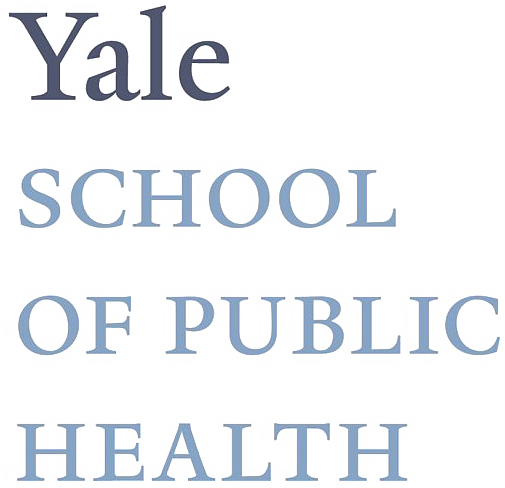
Enroll
Course Information
- Audience: Public health professionals, public health leadership
- Format: Self-Paced
- Price: Free
- Length: 1 hour
- Credential(s) eligible for contact hours: Sponsored by New England Public Health Training Center (NEPHTC), a designated provider of continuing education contact hours (CECH) in health education by the National Commission for Health Education Credentialing, Inc. This program is designated for Certified Health Education Specialists (CHES) and/or Master Certified Health Education Specialists (MCHES) to receive up to 1 total Category I continuing education contact hours. Maximum advanced-level continuing education contact hours are 1. Provider ID: 1131137 Event ID: SS1131137_CMADKAR
If you are not seeking a CHES/MCHES contact hours, if you complete the post-test and evaluation, you will receive a Certificate of Completion. The Certificate will include the length of the course. - Competencies: Leadership and Systems Thinking Skills
- Learning Level: Awareness
- Companion Trainings: None
- Supplemental materials: Course Guide and Technical Requirements (PDF)
- Pre-requisites: None Articulate
- Technical Requirements: This training was created with Articulate Storyline. Please refer to the Articulate 360 System Specifications to ensure your system meets the minimum requirements for viewing.
About this course
This course introduces the idea of change management, specifically the ADKAR model. This model can be used by public health leaders to ease the process of change within an organization and increase the likelihood that changes will be successfully implemented. Learners will have the opportunity to use a real health department scenario to apply ADKAR and better understand how it to use it in their own work.
What you'll learn
After completing the training, you will be able to:
- Define change management
- Recognize the steps of the ADKAR model of change management
- Explain how a collaborative approach can be integrated with the ADKAR model
- Apply the ADKAR model in a Health Department case study
- Discuss the importance of change management to public health practice
Subject Matter Expert
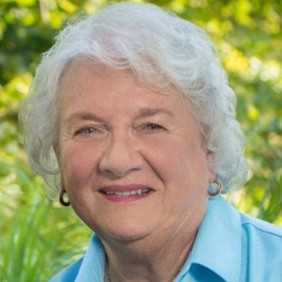
Doe Hentschel, PhDLeadership of Greater Hartford
Dr. Doe Hentschel joined the staff of Leadership Greater Hartford in 2000 after retiring from a long and distinguished career in higher education. She began her LGH career as program director to develop the Third Age Initiative™, LGH’s program to identify, develop and engage older adults in meaningful ways in the community. As Senior Program Director (2006-2007) and then Vice President for Programs (2008-2019), she was involved with developing and implementing many of LGH’s core programs and its consulting and training services. In her current role as “Leadership Preceptor,” she continues to direct the Third Age Initiative™, contribute as curriculum designer and facilitator in many LGH programs and services, and serve as a guide and mentor to her colleagues. A seasoned administrator in higher education, “Dr. Doe” served as Vice President for Academic and Student Affairs at Pine Manor College, Dean of Extended and Continuing Education at the University of Connecticut, and Dean of Adult and Continuing Education at SUNY College at Brockport. She was on the faculty at the University of Wisconsin-Milwaukee in the department of Administrative Leadership/Adult Education where she taught graduate courses in Adult Learning and Development, Continuing Professional Education, Program Development and Implementation, Evaluation, Leadership for Change, and Group Dynamics. Prior to earning her Ph.D. in Urban Education with a focus in Administrative Leadership/Adult Education, she held administrative positions at William Rainey Harper Community College in Palatine, Illinois, and in the statewide public service administration at the University of Illinois. “Dr. Doe” has published more than 50 articles, chapters, and research papers. A leader in curriculum design, she has drawn on her expertise to enrich and expand community leadership programming for people of all ages. In her first book, Look Ma! No Hands! Life’s Lessons Learned the Hard Way (2022) she shares her philosophy of life and leadership drawn from stories about the six months after she broke both elbows in a bicycle accident and had no use of her hands and arms. In 2010, the Association of Leadership Programs honored Dr. Doe with the Preceptor Award, its highest recognition. She was named a Top Ten member of the Connecticut 60 over 60 class of 2018. In 2013, Dr. Hentschel was inducted into the International Adult and Continuing Education Hall of Fame. Dr. Hentschel relocated to Hartford in 2010 from her historic home in Willimantic. She is a trustee of the Watkinson School and serves on the Advisory Board of the Master of Science in Organizational Leadership at Goodwin University. Diagnosed with Parkinson’s Disease in 2009, she serves on the Patient and Family Advisory Council for the Chase Family Movement Disorders Center at Hartford HealthCare. Dr. Doe is the proud mother of two and grandmother of four. Her son and his family live in San Diego, and her daughter and her family live in Preston, CT.
Enrollment and Contact Hours
Select the Enroll Me button below to register for this course. If you have any trouble accessing the recording, contact
support@nephtc.org.
Acknowledgement: This project is supported by the Health Resources and Services Administration (HRSA) of the U.S. Department of Health and Human Services (HHS) as part of award 2 UB6HP31685‐05‐00 “Public Health Training Centers.” The contents are those of the author(s) and do not necessarily represent the official views of, nor an endorsement, by HRSA, HHS or the U.S. Government.

Course Information
- Audience: Public health professionals, public health leadership
- Format: Self-Paced
- Price: Free
- Length: 1 hour
- Credential(s) eligible for contact hours: Sponsored by New England Public Health Training Center (NEPHTC), a designated provider of continuing education contact hours (CECH) in health education by the National Commission for Health Education Credentialing, Inc. This program is designated for Certified Health Education Specialists (CHES) and/or Master Certified Health Education Specialists (MCHES) to receive up to 1 total Category I continuing education contact hours. Maximum advanced-level continuing education contact hours are 1. Provider ID: 1131137 Event ID: TBA
If you are not seeking a CHES/MCHES contact hours, if you complete the post-test and evaluation, you will receive a Certificate of Completion. The Certificate will include the length of the course. - Competencies: Leadership and Systems Thinking Skills
- Learning Level: Awareness
- Companion Trainings: None
- Supplemental materials: Course Guide and Technical Requirements (PDF)
- Pre-requisites: None
- Technical Requirements: This training was created with Articulate Rise. Please refer to the Articulate 360 System Specifications to ensure your system meets the minimum requirements for viewing.
About this course
This course introduces the idea of positionality to public health practitioners and researchers. This framework can be used by people working in public health to reflect on their own identity, and how it may show up in the work they do. Through a lecture and several activities, learners will practice reflection to better understand how it can apply to their own work.
What you'll learn
After completing the training, you will be able to:
- Discuss positionality and its influence
- Reflect on your own positionality using frameworks
- Describe how positionality shows up in public health practice work
Subject Matter Expert
Susan Nappi,Executive Director
Office of Public Health Practice at the Yale School of Public Health
Susan Nappi is the Executive Director of the Office of Public Health Practice at the Yale School of Public Health. With a diverse portfolio in public health practice and research, she has held multiple positions in Connecticut including Senior Director of Community Impact at the United Way of Greater New Haven, Executive Director of the Community Center of Excellence in Women's Health (CCOE) at Griffin Hospital, and Practice Administrator of the Griffin Faculty Practice Plan. Susan has also managed research teams at the Yale School of Public Health and the VA Alcohol Research Center. Her primary interest is building collaborative, equitable, and mutually beneficial community-academic partnerships that espouse a multidisciplinary approach to addressing the social drivers of health. Susan is a first-gen college graduate and received her BA in psychology from the State University of New York, Purchase, and her MPH from Yale University in chronic disease epidemiology. She is currently pursuing her DrPH in Public Health Leadership at the University of Illinois Chicago School of Public Health.
Enrollment and Contact Hours
Select the Enroll Me button below to register for this course. If you have any trouble accessing the recording, contact
support@nephtc.org.
Acknowledgement: This project is supported by the Health Resources and Services Administration (HRSA) of the U.S. Department of Health and Human Services (HHS) as part of award 2 UB6HP31685‐05‐00 “Public Health Training Centers.” The contents are those of the author(s) and do not necessarily represent the official views of, nor an endorsement, by HRSA, HHS or the U.S. Government.

Strong Culture, Strong Organization: A Public Health Leadership Training Series for Leading in Difficult Times - Part 2
How does understanding one's own and the team’s values help a leader move the organization towards a desired vision?

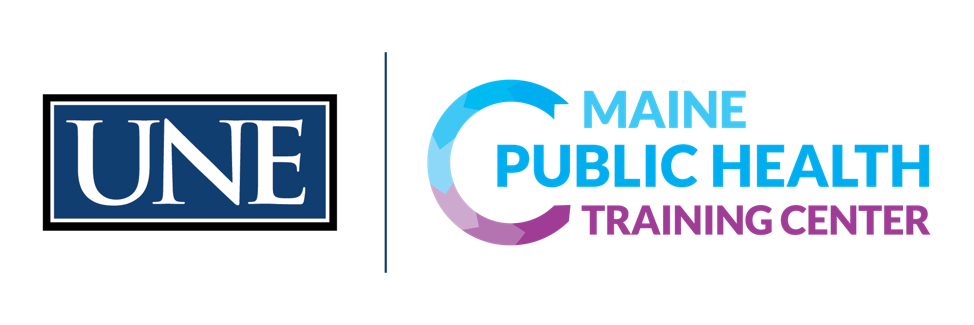
Enroll
Course Information
- Audience: Public Health team leaders, supervisors and aspiring public health and health profession leaders
- Format: Self-Paced
- Price: Free
- Length: 25 min
- Credential(s) eligible for contact hours: Sponsored by New England Public Health Training Center (NEPHTC), a designated provider of continuing education contact hours (CECH) in health education by the National Commission for Health Education Credentialing, Inc. This program is designated for Certified Health Education Specialists (CHES) and/or Master Certified Health Education Specialists (MCHES) to receive up to .5 total Category I continuing education contact hours. Maximum advanced-level continuing education contact hours are .5. Provider ID: 1131137 Event ID: PM1131137_SCSO.
If you are not seeking a CHES/MCHES contact hours, if you complete the post-test and evaluation, you will receive a Certificate of Completion. The Certificate will include the length of the course.
- Competencies: Leadership and Systems Thinking Skills
- Learning Level: Awareness
- Companion Trainings: None
- Supplemental materials: Course Guide and Technical Requirements (PDF)
- Pre-requisites: None
- Technical Requirements: This training was created with Articulate Rise. Please refer to the Articulate 360 System Specifications to ensure your system meets the minimum requirements for viewing.
About this course
This informative and engaging leadership series explores the relationship between organizational culture and the ability of an organization to adapt and respond to external and internal challenges. The three part self-paced virtual series introduces participants to what culture means in health profession settings, culture diagnosis, values based and resilient leadership, and makes a case for integrating kindness and appreciation into culture.
What you'll learn
After completing the training, you will be able to...
- Define key attributes of value based and resilient leaders
- Describe strategies for diagnosing your organization’s culture
- Identify basic tools to lead organizational change
Subject Matter Experts
Joan Bohlke Kaijala, MPP
Joan is an independent consultant currently working on public health projects related to health professions workforce, health equity and organizational development. For many years, Joan worked in both federal and state service. In these positions she was an integral part of the creation of the Massachusetts Health Care Workforce Center and helped establish the first health professions workforce surveys tied to licensure. As an organizational development specialist she helped institute a first of it’s kind culture survey within a federal agency, while also leading numerous people and culture projects. Other leadership roles include President, Board of Directors of the TSC Childcare, Inc., and Vice President of USA Track and Field New England. An avid runner, Joan competed for the New Balance Boston track club, qualifying for the U.S. Nationals. Joan holds a Bachelor of Science degree in Health Policy and Management from Providence College, and a Master of Arts in Public Policy from Stony Brook University; she is the proud mom of Theo and Kai.
Enrollment and Contact Hours
Select the Enroll Me button below to register for this course. If you have any trouble accessing the recording, contact
support@nephtc.org.
Acknowledgement: This project is supported by the Health Resources and Services Administration (HRSA) of the U.S. Department of Health and Human Services (HHS) as part of award 2 UB6HP31685‐05‐00 “Public Health Training Centers.” The contents are those of the author(s) and do not necessarily represent the official views of, nor an endorsement, by HRSA, HHS or the U.S. Government.

Strong Culture, Strong Organization: A Public Health Leadership Training Series for Leading in Difficult Times - Part I
How does culture influence performance and what tools can leaders use influence culture?


Enroll
Course Information
- Audience: Public Health team leaders, supervisors and aspiring public health and health profession leaders
- Format: Self-Paced
- Price: Free
- Length: 25 min
- Credential(s) eligible for contact hours: Sponsored by New England Public Health Training Center (NEPHTC), a designated provider of continuing education contact hours (CECH) in health education by the National Commission for Health Education Credentialing, Inc. This program is designated for Certified Health Education Specialists (CHES) and/or Master Certified Health Education Specialists (MCHES) to receive up to .5 total Category I continuing education contact hours. Maximum advanced-level continuing education contact hours are .5. Provider ID: 1131137 Event ID: PM1131137_SCSO.
If you are not seeking a CHES/MCHES contact hours, if you complete the post-test and evaluation, you will receive a Certificate of Completion. The Certificate will include the length of the course.
- Competencies: Leadership and Systems Thinking Skills
- Learning Level: Awareness
- Companion Trainings: Strong Culture, Strong Organization: A Public Health Leadership Series for Leading in Difficult Times - Part 2
- Supplemental materials: Course Guide and Technical Requirements (PDF)
- Pre-requisites: None
- Technical Requirements: This training was created with Articulate Rise. Please refer to the Articulate 360 System Specifications to ensure your system meets the minimum requirements for viewing.
About this course
This informative and engaging leadership series explores the relationship between organizational culture and the ability of an organization to adapt and respond to external and internal challenges. The three part self-paced virtual series introduces participants to what culture means in health profession settings, culture diagnosis, values based and resilient leadership, and makes a case for integrating kindness and appreciation into culture.
What you'll learn
After completing the training, you will be able to...
- Define organizational culture
- List two attributes of culture unique to health serving organizations
- Summarize the relationship between culture, leadership, and performance
- Identify methods to determine core organizational values
Subject Matter Experts
Joan Bohlke Kaijala, MPP
Joan is an independent consultant currently working on public health projects related to health professions workforce, health equity and organizational development. For many years, Joan worked in both federal and state service. In these positions she was an integral part of the creation of the Massachusetts Health Care Workforce Center and helped establish the first health professions workforce surveys tied to licensure. As an organizational development specialist she helped institute a first of it’s kind culture survey within a federal agency, while also leading numerous people and culture projects. Other leadership roles include President, Board of Directors of the TSC Childcare, Inc., and Vice President of USA Track and Field New England. An avid runner, Joan competed for the New Balance Boston track club, qualifying for the U.S. Nationals. Joan holds a Bachelor of Science degree in Health Policy and Management from Providence College, and a Master of Arts in Public Policy from Stony Brook University; she is the proud mom of Theo and Kai.
Enrollment and Contact Hours
Select the Enroll Me button below to register for this course. If you have any trouble accessing the recording, contact
support@nephtc.org.
Acknowledgement: This project is supported by the Health Resources and Services Administration (HRSA) of the U.S. Department of Health and Human Services (HHS) as part of award 2 UB6HP31685‐05‐00 “Public Health Training Centers.” The contents are those of the author(s) and do not necessarily represent the official views of, nor an endorsement, by HRSA, HHS or the U.S. Government.












